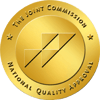For many, Valentine’s Week is a time filled with expressions of love, connection, and togetherness. But for men in recovery—especially those who find themselves alone due to the consequences of their addiction—this week can be a painful reminder of what was lost. It’s easy to feel isolated, to dwell on past relationships that didn’t survive the weight of addiction, or to compare yourself to others who seem to have it all together.%20(1).jpeg?width=672&height=480&name=(672%20x%20480%20px)%20(1).jpeg)
But here’s the truth: you are not alone.
Loneliness is a common struggle in recovery, but it doesn’t have to define your journey. Instead of allowing this week to be one of regret or isolation, use it as an opportunity for growth, connection, and self-compassion. Here’s how:
1. Shift the Focus: Love Yourself First
Addiction often strips away self-worth, leaving behind guilt, shame, and self-judgment. This Valentine’s Week, instead of mourning a lack of romantic love, focus on building self-love. Treat yourself with the same care and compassion you would a close friend. Write yourself a letter of encouragement. Take yourself out for a nice meal. Acknowledge your progress, no matter how small.
Remember, learning to love yourself is not a selfish act—it’s a necessity for long-term recovery.
2. Reach Out Instead of Retreating
Loneliness feeds on isolation. When the weight of solitude feels heavy, it’s easy to retreat into old patterns of avoidance. Instead, reach out to a support group, a sponsor, or a trusted friend. Attend a meeting, call someone who understands, or even send a text to check in on someone else who may be struggling.
Connection doesn’t always have to be deep or profound—sometimes, it’s just about showing up.
3. Redefine What Love Means
Valentine’s Day is often centered on romantic love, but love exists in many forms:
- Brotherhood in recovery – Support and encouragement from others walking the same path.
- Family bonds – Rebuilding trust and reconnecting with loved ones over time.
- Spiritual love – Finding connection through faith, purpose, or something greater than yourself.
- Acts of service – Volunteering, helping others in need, and practicing gratitude.
Take time to reflect on the ways love already exists in your life. Love isn’t limited to one person or one type of relationship—it’s found in the simple, everyday connections you make.
4. Strengthen Your Recovery Routine
Loneliness can trigger thoughts of relapse if you’re not careful. Use this week to strengthen your recovery habits:
- Stick to your daily routine.
- Get outside and move—exercise, hike, or just take a walk.
- Journal your thoughts and emotions instead of bottling them up.
- Try something new—a hobby, a class, or an activity that challenges you in a healthy way.
Staying proactive keeps your mind and body engaged, making it easier to navigate tough emotions.
5. Plan Something to Look Forward To
If you’re dreading Valentine’s Day, shift your focus to something else. Plan a weekend trip, a guys’ night with sober friends, or an event you can anticipate with excitement. Having something to look forward to helps combat the feeling of loneliness and reminds you that life continues beyond this one day.
6. Practice Gratitude
Loneliness often narrows our perspective, making us focus on what we don’t have rather than what we do. Each day this week, take a few moments to write down something you’re grateful for. Gratitude has the power to change how you experience your reality—it helps reframe loss into lessons, pain into growth, and solitude into self-discovery.
You Are Not Alone
Recovery is a journey that requires patience, resilience, and connection. If this week feels challenging, remind yourself that healing takes time and that the life you are building is worth the effort. There are people who care, support systems to lean on, and opportunities for growth, even in the face of loneliness.
Valentine’s Week doesn’t have to be about what’s missing—it can be about what’s possible. And in this journey of recovery, there is always hope, always connection, and always a chance to move forward.
If you’re struggling, don’t hesitate to reach out. Soberman’s Estate is here to support you every step of the way.
Soberman's Estate is a residential men's addiction treatment center that provides discreet, individualized, sophisticated recovery and wellness services for adult men that want to recover from substance use disorders, and or other behavioral issues such as trauma, anxiety, depression, stress, or other addictions.
If you or someone you know are struggling and wondering about the next step for receiving help, please call our Admissions Director for a complimentary consultation at 480-351-6749, or email info@SobermansEstate.com.





